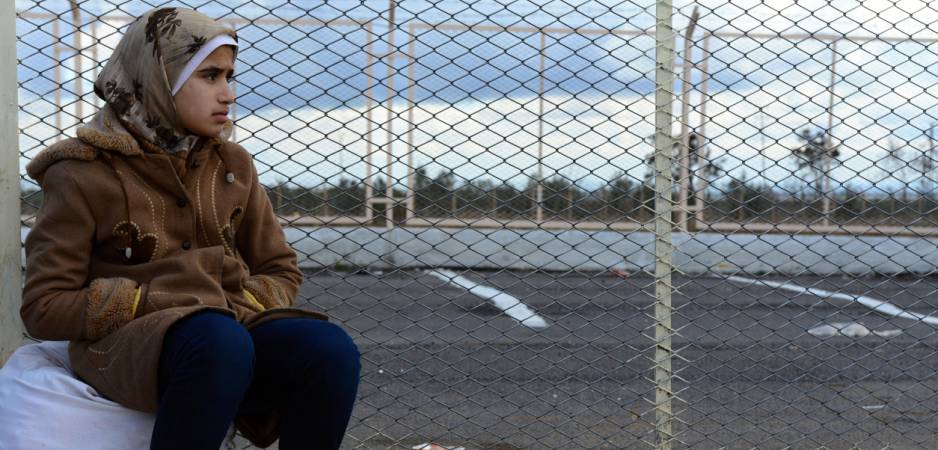Aleppo marks a new low in the Middle East’s own version of the Thirty Years’ War where geopolitical rivalries are worsening horrific sectarian strife.
In the September 25 edition of The World This Week, this author analyzed the reasons for the Syrian Civil War and called it a never-ending tragedy. This week, the savage carnage in Aleppo has made that tragedy insanely horrific.
So far, Syria had already experienced barrel bombs, multiple massacres, cold-blooded executions, mass rapes and numerous chemical weapon attacks. Countless children had died, schools had ceased to exist, and hospitals had turned into skeletal structures bereft of medical facilities. Even by gruesome Syrian standards, this week’s developments in Aleppo mark a new low in a grim and brutal civil war. The brutality of the ongoing slaughter is reminiscent of medieval times with human rights abuses galore. Many are asking if anyone can do anything to put an end to such barbarity.
The carnage in Aleppo is causing sensitive souls deep distress. At Fair Observer, Muhammad Zulfikar Rakhmat and Muhammad Beni Saputra, two young Indonesians, have penned a plaintive letter to the leaders of the Muslim world, exhorting them “to end the horror stories coming out of Aleppo.” Maria Khwaja, an eloquent American at the University of Cambridge, has penned “an emotive farewell to Aleppo,” declaring that the world has forgotten about civilians in the city and all of us have failed them.
These writers imply that some or all of us must act to end the tragedy in Aleppo. Without possibly knowing so, they are championing the idea of liberal intervention. At its simplest, this idea is a foreign policy doctrine according to which liberal states should intervene in other sovereign states to pursue liberal objectives. So, what exactly do we mean by liberal?
The word “liberal” might be a dirty word in the United States but, for most students of politics, liberalism is a political philosophy founded on ideas of liberty and equality. This philosophy is derived from the lofty ideals of the Enlightenment, which include freedom of belief, faith or worship, freedom of thought and expression, right to life and liberty, equality before the law irrespective of gender, race or class, and separation of church and state.
Now, the idea of liberal states intervening to bring about peace, prosperity and the pursuit of happiness sounds like a jolly good idea. Sadly, it turns out that states tend to be self-interested creatures that are rarely liberal. Henry John Temple, or Lord Palmerston, is the chap who first pushed forth this doctrine of liberal intervention. In 1848, he supported the many European revolutions that swept through the continent and declared that “the real policy of England is to be the champion of justice and right, pursuing that course with moderation and prudence, not becoming the Quixote of the world, but giving the weight of her moral sanction and support wherever she thinks that justice is, and whenever she thinks that wrong has been done.”
All this sounds splendidly stirring until one remembers that, as early as 1844, Palmerston was accused of “conquest, murder, and plunder in Central Asia” that included “the bloody occupation of Afghanistan” as well as the “violent annihilation of Sindhian independence.” Today, it is impossible to ignore that this liberal imperialist bitterly opposed Irish independence and ruthlessly crushed the Indian Rebellion of 1857. Palmerston also led his imperial nation into Opium Wars against China for that most convenient principle of free trade. After all, British traders had the sovereign divine right to sell opium to Chinese users and the officials of the Middle Kingdom had no place to object rudely.
Similarly, Tony Blair, heir to Palmerston, indulged in liberal intervention in places like Sierra Leone, Bosnia and Afghanistan. He also acted as poodle to George W. Bush in the Iraq War of 2003 that was an utter and unmitigated disaster. The Economist, a newspaper that opposed India’s independence from 1843 to 1947, made a strong case for the Iraq War in evocative terms of liberal intervention, reminiscent of Palmerston. On December 17, this venerable publication has yet again made the case for the same idea in the aftermath of Aleppo.
The lesson The Economist drew from Aleppo’s tragic fate was that terrible things happen when interests triumph over values. It points out that, during the first protests against Bashar al-Assad, Sunnis, Shias, Christians and Kurds marched together. The Syrian dictator unleashed violence to radicalize his people. Paralyzed by the legacy of Iraq and Afghanistan, the West held back. The risk and complexity of intervention increased as the fighting intensified. As Assad’s goose was about to be cooked, Russia joined Iran to save the vile fellow. The result has been a tragedy of epic proportions.
The Economist makes the case that countries, which really means the United States and the United Kingdom, have a duty to constrain brute force. The West must promote freedom and democracy. US President Barack Obama has been wrong in treating Syria as a trap to be avoided. It makes the case that the US must intervene as the global policeman and that it must cultivate “its unparalleled network of alliances.” If the US steps back, the likes of Russia, China and Iran will rush in to fill the vacuum. The poor and innocent suffer when values fail to hold back the chaos and anarchy of geopolitics.
As usual, The Economist makes a seductive point while ignoring inconvenient truths. The US and the UK are not quite Apollonian forces holding back Dionysian urges for the world. As this author pointed out on September 25, the Syrian Civil War is “a catastrophic conflict of confounding complexity.” It was France and Britain that gobbled up Ottoman territory after World War I and introduced Westphalian European-style nation states that are now falling down like Humpty Dumpty.
 Even in Europe, the creation of nation states was bloody and brutal. In the Middle East, disparate communities in far-flung regions who had largely lived autonomously were brought under the heel of capitals like Damascus and Baghdad with Stalinist barbarity. Few now remember that Hafez al-Assad and Saddam Hussein were Baathists who belonged to minority communities. Assad was a Shia Alawite who ruled a Sunni-majority state, while Saddam was a Sunni of the Tikrit clan who ruled a Shia-majority state. Supposedly socialist, both these gentlemen were “mafia bosses intent on handing over power only to their sons.”
Even in Europe, the creation of nation states was bloody and brutal. In the Middle East, disparate communities in far-flung regions who had largely lived autonomously were brought under the heel of capitals like Damascus and Baghdad with Stalinist barbarity. Few now remember that Hafez al-Assad and Saddam Hussein were Baathists who belonged to minority communities. Assad was a Shia Alawite who ruled a Sunni-majority state, while Saddam was a Sunni of the Tikrit clan who ruled a Shia-majority state. Supposedly socialist, both these gentlemen were “mafia bosses intent on handing over power only to their sons.”
Both Assad and Saddam were also favored by the West at various points in time. As Roger Morris pointed out in The New York Times, Saddam was a key US ally for years from the days of John F. Kennedy to George H.W. Bush. During the Ronald Reagan era, Saddam was seen as a doughty warrior who kept the radical Iranians at bay in the 1980-1988 Iraq-Iran War, the longest conventional war in the 20th century as per the BBC. As Foreign Policy points out, the US was quite happy with Saddam conducting chemical attacks and gassing Iranians or even Kurds merrily.
The Economist fails to point out that Bush and Blair committed a monumental blunder in attacking Iraq. This publication of 1843-vintage was a rather hyperactive cheerleader for that blunder. Like Niall Ferguson, The Economist believes in the moral if not racial superiority of the West and in Palmerston’s idea of liberal intervention. The fact that the US and UK were flouting the United Nations (UN), a body that they themselves created after World War II and where they have penned the rules of the game, was staggeringly stupid. Besides, attacking Iraq after years of supporting Saddam on the claim that they would bring freedom and democracy to Iraq sounded suspiciously similar to Palmerston’s case for the Opium Wars.
The invasion in itself was bad enough. What followed thereafter was dire. Instead of bringing democracy to Iraq, the US and the UK brought torture and disaster to the country. Retired diplomats of the US State Department and former spies of the Central Intelligence Agency (CIA) now tell how doctrinaire neoconservatives deemed old hands who spoke Arabic as contaminated by the natives. As this author pointed out in the September 11 edition of The World This Week, “hyped-up Harvard Law School bigwigs who specialize in Jewish and Israeli law” cooked up Iraq’s delectable new constitution that made remarkably idiotic assumptions and had no understanding of ground realities.
It was arrogant and ignorant US diplomats who came up with the terrible idea of de-Baathification. In Saddam’s Iraq, membership of the Baath party was de rigueur for almost any job. Getting rid of all Baathists meant that the post-Saddam, US-led Iraq fired teachers, gardeners, fire fighters and others who provided essential services. In 2013, 10 years after the US-UK invasion, Miranda Sissons and Abdulrazzaq al-Saiedi published an article on Al Jazeera which argued that “de-Baathification still haunts the country.” Landon Shroder, an American security consultant who spent years in Baghdad, has consistently argued at Fair Observer that “without the US invasion of Iraq, there would be no Islamic State.”
It is not that all this was unforeseeable. Observers of the region were well aware that states like Syria and Iraq were artificial colonial entities held together by blood and iron. Under Assad and Saddam, incarceration, torture, massacres, chemical weapons et al were all par for the course. It was obvious that revolts, rebellions and revolutions were inevitable. When the US and the UK were marching in, many soldiers, diplomats and intelligence chiefs warned that things would get messy very quickly.
In fact, so did many world leaders. Stephen Wall, an adviser to Blair, recounts Jacques Chirac telling Blair at an Anglo-French summit in 2003: “First of all, war is a pretty nasty thing. I was a young soldier in Algeria. I know what it is like. Secondly, if you go into Iraq, you will not be welcomed. Thirdly, there will be a civil war. Fourthly, a sheer majority is not the same thing as democracy.” Wall goes on to remember that Blair rolled his eyes at that time and remarked, “Poor old Jacques, he doesn’t get it. Does he?”
As Wall now admits, Chirac got it rather better than Blair. The civil war that Chirac presciently predicted has spread from Iraq to Syria. After all, the national identities in both these countries were always tenuous outside their capitals. Borders were arbitrary and sectarian strife was bound to cross them. Now, strife has engulfed the Middle East and is a recurring reminder that civilization is often a rather thin veneer.
The Economist forgets that human beings can be vile and vicious in pursuing both interests and values. Just as Russia has been cynical in supporting Syria, Americans were doctrinaire in invading Iraq. This is what Rakhmat, Saputra, Khwaja and others like them need to remember. The world generally does not care about the suffering of people far away. Most people are rather stingy about their time, money and energy. Furthermore, they can often do little to ameliorate that suffering in the short term. Even when they act, they can do more harm than good. Actions become even more difficult when people are fragmented along religious, regional, linguistic, economic and national lines. This makes working toward a common purpose, howsoever noble, exceedingly difficult. Tackling climate change is a case in point.
In any case, much of the world is intervening in Syria. That is a key part of the problem. Bashar al-Assad commands a ragtag army now. He has retaken Aleppo thanks to Iranian-backed militias and Russian airpower. As a result, Assad now controls the west of the country, its Mediterranean coastline and its major cities. This “essential Syria” or “rump Syria” is vital for Russia and Iran. In fact, Russia is building a permanent naval base in Syria at Tartus where its fleet can sail down from Sevastopol in Crimea, its only warm water port. Iran wants to expand its influence by creating a “Shia crescent” all the way from Tehran to Beirut. As Justin McCauley brilliantly points out, Iran “has formed a kind of Shia Comintern” to project power abroad.
Naturally, Sunni powers like Saudi Arabia and Turkey are not thrilled about Russian and Iranian plans. They have been aiding rebels in Syria for a while. It has been an open secret that some Saudi money made its way to the Islamic State (IS). A little more than two years ago, Turkish tanks idled as IS attacked Kobane, a Kurdish border town in Syria. This made many suspect that Turkey was turning the Nelson’s eye if not actively aiding IS.
Tied down in Afghanistan and Iraq, Uncle Sam could not afford to send its exhausted troops to Syria as well. So, it backed so-called moderate rebels. This backfired spectacularly with moderates decimated both by loyalist troops and jihadist groups. Now with Donald Trump & Co. waiting in the wings, the retired generals and former corporate bosses will have to reconcile their love for Vladimir Putin and Russia with their hatred for Iran and its nuclear deal.
Assad’s victory in Aleppo is likely to be Pyrrhic. From now on, rebels might focus on hit-and-run insurgency instead of on holding territory. Many like Abdulkafi al-Hamdo, an English teacher in Aleppo, prefer death to life under the Assad regime. As Hamdo eloquently said: “Put yourself in my situation. Someone killed your children, killed your neighbors, killed your friends, destroyed your schools, houses and hospitals. And after that, you can go back to him?”
In the May 22, 2015 edition of The World This Week, this author stated that “the Middle East was experiencing its own version of the Thirty Years’ War.” Aleppo marks a major battle in that raging war that tragically blights our times.
*[You can receive “The World This Week” directly in your inbox by subscribing to our mailing list. Simply visit Fair Observer and enter your email address in the space provided. Meanwhile, please find below five of our finest articles for the week.]
A Farewell to Aleppo
As Aleppo falls, the world has forgotten about civilians in Syria.
I woke up this morning to a video of an old Syrian man gesturing wildly at a camera as bombs tore up the concrete behind him. He looked like many Arab grandfathers I know, bearded and wearing a plaid shirt decorated with dust.
On Twitter: images of soldiers carrying civilians out of a besieged city; women committing suicide rather than being raped by government forces; politicians barely holding an emergency meeting; a boy weeping over his dead mother. We have failed you, Aleppo.
We have watched for years while you burned. While bewildered children covered in dust were found in the rubble; while refugees died on foreign shores in Mediterranean water; while our politicians kept silent or helpfully funded another proxy war. We have failed you. We have invented sanitized phrases for what is happening to your people. In a few years, if your “otherness” is allowed… Read more
Fake News or Hypernews?
It is incumbent on our educational systems to make an effort to help the young become more discerning.
During this interregnum between the administrations of the two American presidents, fake news has become the biggest and most consistent story in the media. The screenwriters of this unfolding drama have given Russia the starring role—particularly the Democrats, who offer it partly as an explanation of why they lost. But Facebook is also among the accused as the most prominent amplifying medium of fake news.
Pursuing the idea that Russia is the lead player in the global exploitation of fake news, The Washington Post achieved the summit of hyperreality when it published the ultimate fake news item: an article claiming as a fact that specific websites—most of them famously independent but critical of the establishment—are “routine peddlers of Russian propaganda.” It was a clear case of invented news purporting to expose sincere news outlets as purveyors of… Read more
Heil the Trump Victory
Donald Trump’s victory has provoked a sectarian struggle over American Jewish values.
The recent, unexpected election of Donald J. Trump to the US presidency has aroused widespread fear, anxiety and, not infrequently, derision on the part of political observers—both at home and abroad. Why?
At first, the answers seem obvious and straightforward. The president-elect is an amateur at politics, never having run for public office. He is a huckster and conman who bears a closer resemblance to P.T. Barnum than Dwight Eisenhower. Trump is also a notoriously thin-skinned bully and is unable to tolerate even mild criticism without recourse to vengefulness. He is also a sexist whose views on women often appear to approach lechery. Yet that is not the worst of it.
As far as his policy proposals are concerned, Trump appeals to a renewed nationalism, “America First”— itself first popularized by interwar fascists in the US, led by an earlier celebrity, Charles Lindbergh—aimed at… Read more
The Church: Caught Between Russia and Ukraine
In Eastern Ukraine, the Orthodox Church finds itself in the crossfire of an ideological conflict.
“I call on those who cry out that we should restore justice with our fists: Our country is ailing, but we must treat her in a way that does not kill the patient … We must call a sin a sin, but love the sinner. I speak of the eternal. Think of that, so that you won’t be ashamed to look in the eyes of your children, so that you won’t need to stand before the icon and cry ‘Lord, what have we done?’”
The Orthodox priest Giorgiy Gulyaev spoke these words on March 1, 2014, to a large, restive crowd in the Eastern Ukrainian city of Donetsk. He was addressing a meeting attended by both sides of the rapidly polarizing city and directed his words to the pro-Russian separatists in the crowd, who comprised the majority. They roared their disapproval at him… Read more
Jehovah’s Witnesses Holds Women Back
An open letter to Serena Williams about Jehovah’s Witnesses’ treatment of women.
Dear Serena,
I want to start by applauding everything you said in your open letter that was reproduced on The Guardian website last week. As a woman, I too have experienced firsthand the inequity and unfair treatment that results from gender inequality in our society. Whilst it is true that great strides have been made in this area in recent decades, it is also true that there is still much work to do. I support and commend every sentence of your letter.
It is thus in this spirit of co-operation and progression toward gender equality that I must respectfully draw to your attention the following serious matter. Namely that you have on a number of occasions associated yourself with and promoted the Jehovah’s Witnesses religious organization. This organization teaches and enforces gender and social doctrines upon its members that are the exact opposite of the stance… Read more
The views expressed in this article are the author’s own and do not necessarily reflect Fair Observer’s editorial policy.
Photo Credit: Omersukrugoksu
Support Fair Observer
We rely on your support for our independence, diversity and quality.
For more than 10 years, Fair Observer has been free, fair and independent. No billionaire owns us, no advertisers control us. We are a reader-supported nonprofit. Unlike many other publications, we keep our content free for readers regardless of where they live or whether they can afford to pay. We have no paywalls and no ads.
In the post-truth era of fake news, echo chambers and filter bubbles, we publish a plurality of perspectives from around the world. Anyone can publish with us, but everyone goes through a rigorous editorial process. So, you get fact-checked, well-reasoned content instead of noise.
We publish 2,500+ voices from 90+ countries. We also conduct education and training programs
on subjects ranging from digital media and journalism to writing and critical thinking. This
doesn’t come cheap. Servers, editors, trainers and web developers cost
money.
Please consider supporting us on a regular basis as a recurring donor or a
sustaining member.
Will you support FO’s journalism?
We rely on your support for our independence, diversity and quality.











